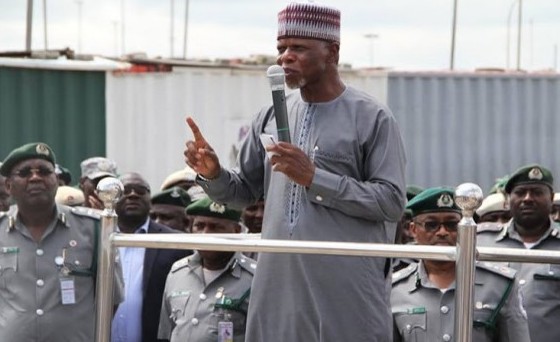Worried by Nigeria’s poor ranking in the ease of doing business, the Nigeria Customs Service has commenced Time Release Study (TRS) of the nation’s premiere port, which it said would help determine the accuracy of Nigeria’s rating by the World Bank.
According to the World Bank, Nigeria currently ranks 183 out of 190 countries from 181st position it occupied in 2017 on Trading across border on ease of doing business amongst countries.
The World Bank Trade Index is a tool that measures the ease of doing business amongst other indicators in each country. Other indicators are trading across border, access to credit electricity supply paying taxes, registering property and the ease of starting a business.
Speaking at a stakeholders meeting held in Lagos on Thursday, Coordinator of the TRS, Comptroller Wale Adeniyi, maintained that all the indexes used in the rating were done by the World Bank and that the criteria used were not comprehensive enough, hence the need for the study in the country where stakeholders’ opinion and other relevant agencies involved in release of goods from the port would be sampled to generate accurate facts and figures to arrive at the accurate submission.
“The logistics index and other indexes were handled by the World Bank and their agencies and we discovered that the criteria they used are not comprehensive enough. They don’t talk to all the stakeholders enough. TRS is slightly different because we are bringing all the stakeholders together and we developing the criteria that we are going to use to measure together.
“Even the most developed economies pick holes and express dissatisfaction with their positioning and ranking in the ease of doing business and all other indexes. But the WCO TRS offers an alternative that is more scientific and that is more inclusive of all the stakeholders,” he said.
Adeniyi, stated that the study which started in July and is expected to round off in November, would afford the country to know what necessary approach to improve trade facilitation at the nation’s port.
According to him, the pilot stage is to create awareness about the study among stakeholders as well as to have an interaction with them for necessary inputs that will help in making decisions.
He said, “We are here to meet stakeholders to create awareness about the Time Release Study (TRS) Project. Time Release Study is a project that Customs administration all over the world can use as a tool to measure how effective their trade facilitation measures are.
“You could automate your procedure, you could change your law, you could put the right people in the right place but you can still see how efficient these things are in terms of how much of time it takes to process goods from the time of arrival to the time of exit from the port.
“So, this is what TRS is all about and it is being executed by a working group that comprises the Customs and all the stakeholders that are involved in the release of goods from the port.
“The stage we are now is that we have come up with a questionnaire to know what time did your cargo arrive at the port, what time was the rotation number given, what time you get to Customs, what time did you pay, how long did it take customs and government agencies to process it.
“So we will harvest all those data and analyse and then took at where the bottlenecks are. We will then have further discussions with stakeholders to see what we can do about those bottlenecks.
“Is it about changing the laws, is it about changing the procedure, is it about reducing the number of people intervention that is involved. This is what this study is about. It is a more scientific approach to trade facilitation.”
